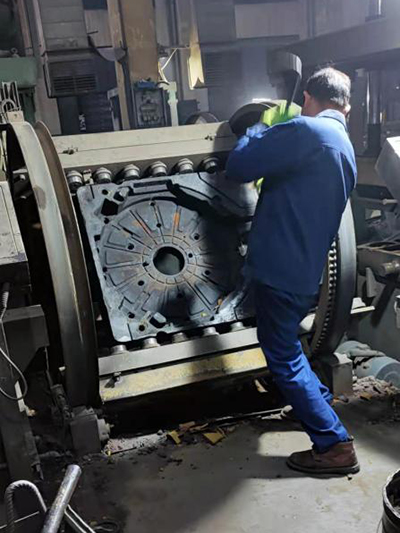Understanding Resin Coated Sand A Comprehensive Overview
In the world of manufacturing and engineering, the choice of materials plays a crucial role in determining the quality and durability of finished products. Among the various materials used in these industries, resin coated sand has gained significant attention for its unique properties and benefits. This article delves into what resin coated sand is, its production process, applications, advantages, and potential considerations for its use.
What is Resin Coated Sand?
Resin coated sand is a specialized type of sand utilized primarily in the casting process of metals, particularly in the foundry industry. It consists of high-quality sand grains that are coated with a thermosetting resin binder. The primary function of this coating is to enhance the mechanical properties of the sand, making it more suitable for various casting applications.
The resin used in this process can vary, with phenolic, furan, and epoxy resins being among the most common choices. The coating of sand with resin significantly improves its strength, thermal stability, and surface finish, enabling the creation of high-fidelity castings that exhibit intricate designs and precise dimensions.
Production Process
The manufacturing of resin coated sand involves several steps. Firstly, high-quality silica sand is selected and cleaned to remove impurities. The cleanliness of the sand is crucial as any contaminants can affect the quality of the final casting.
Once the sand is prepared, it is mixed with the chosen resin binder along with a hardener, if necessary. This mixture is then subjected to controlled heat to promote the curing of the resin. The curing process transforms the resin into a solid form, firmly attaching it to the sand grains. The final product is a durable, non-sticky sand that can withstand the high temperatures encountered in metal casting processes.
Applications
Resin coated sand finds extensive application in various industries, with metal casting being the most prominent. It is used to create molds and cores that provide the shape and structure for molten metal. The high precision of resin coated sand makes it particularly suitable for casting intricate parts like engine components, turbine blades, and other critical machinery parts.
In addition to casting, resin coated sand is also used in the manufacturing of non-metallic products, such as in the production of composites, foundry core making, and shell molding applications. Its versatility and adaptability to various casting techniques make it a preferred choice across multiple sectors.
Advantages of Resin Coated Sand
what is resin coated sand

Several benefits make resin coated sand an attractive option for manufacturers
2. Surface Finish Castings produced with resin coated sand typically exhibit superior surface finishes compared to those made from traditional sand molds, reducing the need for extensive post-processing.
3. Thermal Stability Resin coated sand can withstand higher temperatures, making it suitable for casting metals that may require substantial thermal resistance.
4. Reduced Air Pollution The use of resin-coated sand minimizes the release of volatile compounds during the casting process, leading to a reduced environmental impact compared to other traditional methods.
5. Customization Manufacturers can adjust the resin type and coating process to tailor the properties of the sand to meet specific needs, enhancing its versatility.
Considerations
While the advantages of resin coated sand are numerous, there are also considerations to keep in mind. The cost of resin coated sand can be higher than traditional sand options, which may affect overall budgeting in manufacturing projects. Additionally, careful handling and storage are required to prevent the resin from degrading, especially if exposed to moisture or excessive heat.
Moreover, the curing process of the resin can lead to the emission of volatile organic compounds (VOCs), necessitating proper ventilation and safety measures in manufacturing environments.
Conclusion
Resin coated sand has emerged as a vital material in modern manufacturing and casting processes. Its unique combination of strength, precision, and thermal stability makes it an excellent choice for producing high-quality castings. As industries continue to evolve, the role of resin coated sand is likely to expand, presenting opportunities for innovation and improvement in material science. Understanding its properties and applications enables manufacturers to harness its full potential, ultimately leading to enhanced product quality and performance.
Post time:11 月 . 09, 2024 09:45
Next:Exploring the Applications and Benefits of Sand Casting in Modern Manufacturing Techniques
